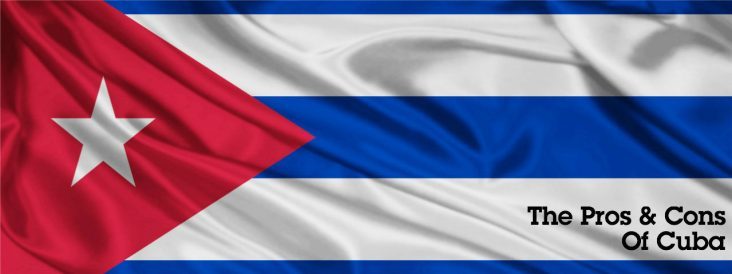Supporters of Cuba trade gather at Petit Jean, say embargo should end
by March 22, 2016 2:50 pm 255 views

Arkansas Farm Bureau Federation President Randy Veach was part of a delegation of Arkansas business leaders who traveled to Cuba last September, and now he’s hoping to return the favor.
Veach said Tuesday (March 22) that he and others are trying to organize a visit to Arkansas by a Cuban delegation, hopefully this year, to see Arkansas agriculture at work. Veach made his comments during and after a panel discussion as part of The Cuba Consortium Agriculture and Food Roundtable, a two-day event at the Winthrop Rockefeller Institute on Petit Jean Mountain. The event was organized by The Cuba Consortium, a program of the Howard Baker Forum, and was convened with help from the Institute and Winrock International. The Institute is an educational institute and conference center associated with the University of Arkansas System. Winrock International is an international development agency.
President Barack Obama has taken steps to improve relations with Cuba, though the United States’ five-decades-old trade embargo against the communist island nation remains. Speakers indicated their support for ending the embargo.
The two-day event, which included an address Monday by Gov. Asa Hutchinson, coincided with Obama’s trip to Cuba – the first by an American president since Calvin Coolidge. During the visit, Obama met Raul Castro, Cuba’s leader and brother of Fidel. Raul Castro has said he is leaving office in 2018. As the event was finishing at the Winthrop Rockefeller Institute, the Tampa Bay Rays were beginning a baseball game in Havana against the Cuban National Team.
Veach said the United States must stop looking back through recent history and instead look forward to the future. The more the United States helps Cuba improve its economy, the more its people will be able to buy American commodities.
Terry Harris, vice president of Riceland Foods, said his company supports ending the embargo. Cuba was the largest export market for rice before the embargo was enacted, and the United States could quickly regain market share, he said. He said Riceland had a booth at the Havana Trade Fair in November 2001 and then was asked to sell rice to the country after a hurricane that struck shortly afterward. Through the years, there have been times change seemed to be coming, but he said he’s been disappointed many times. Since 2006, no U.S. rice has been sold in Cuba.
The event also included a Skype session with U.S. Rep. Rick Crawford, R-Jonesboro, who is a member of a congressional Cuba Working Group. Crawford said Cuba imports 400,000 tons of rice a year from Vietnam, a trip that takes 36 days versus the 36 hours it would take to ship from the United States. He said he represents half of the nation’s rice acres in his eastern Arkansas district.
Crawford said the 10-member working group is bipartisan and geographically and politically diverse. It includes representation from Florida, which traditionally has been home to a large Cuban immigrant community strongly opposed to having normal relations with Cuba as long as the Castro regime is in power. He said trade with Cuba traditionally has been viewed through the lens of the Cold War, but instead of punishing the Castro regime, it punished American producers.
Crawford has introduced a bill, the Cuba Agricultural Exports Act, that would end restrictions on financing for exports to Cuba, give producers access to Department of Agriculture marketing programs, and allow unlimited investment in private Cuban agribusiness. The measure could be included in upcoming appropriations bills, though he said that was difficult to do in this political environment. He said the measure might move as a standalone bill during the lame duck session after the November elections, or it could be passed next year.
The event also included a panel discussion featuring Ruben Ramos Arrieta, Cuba’s minister counselor at its Economic and Trade Office in Washington, and Dr. Reinaldo Funes Monzote, a University of Havana professor from Cuba who teaches at Yale University. Arrieta said the country has been undergoing a “transformation” since 2008. Cuba has 6.3 million hectares of agricultural land. Eighty percent of it is state-owned, but 70% of that is now being used by private farmers and cooperatives. Cuba faces challenges in that 70-80% of its food, or about $2 billion worth, is imported, including much of its rice.
Michael Bustamante, a Yale University professor, said during a question-and-answer session moderated by former U.S. Senate Majority Leader Tom Daschle that travel between the two countries has opened considerably. He said that, in the Miami airport, a long line of Cuban Americans are visiting Cuba and carrying lots of cash and luggage.
Bustamante said Cubans have an entrepreneurial spirit that helps them maintain an “a-legal economy” – not completely allowed but often ignored by government authorities. He said his family members in Cuba do have concerns about how the country will build its economy from the ground up.
